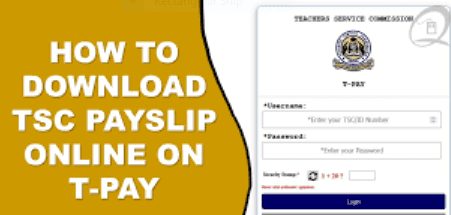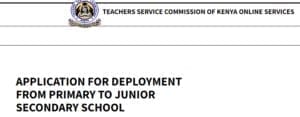The Teachers Service Commission (TSC) is planning to meet teachers’ unions for possible deal that could see teachers enjoy a pay rise.
According to close sources, TSC has warned Knut to up its game and have sufficient numbers to allow it to negotiate for its members; inline with labour laws, for it to participate in the Collective Bargaining Agreement (CBA) talks.
ALSO READ:
New salary scales for TSC teachers
TSC online system portal login at https://teachersonline.tsc.go.ke/
How to apply for the advertised TSC vacancies online at the https://hrmis.tsc.go.ke/ portal
Mwalimu National Sacco loans; BOSA interest rates and loan calculator
Currently Knut represents primary school teachers, Kuppet secondary school teachers and Kusnet for teachers in special schools.
In November 2019 during Sossion tenure as Knut secretary general, TSC terminated recognition agreement it signed with Knut in 1968.
TSC ended the recognition agreement after serving Knut with a two month notice. The Commission secretary quoted several clauses of the labour laws that were violated.
“The Kenya Union of Teachers does not have the simple majority of unionisable employees under the employment of Teachers Service Commission as by November 4th,” Macharia said in a letter.
The commission further quoted section 54(1) of the Labour Relations Act on the Recognition of Trade Unions and Collective Agreement which states that:
“An employer, including an employer in the public sector, shall recognise a trade union for purposes of collective bargaining if that trade union represents the simple majority of unionisable employees”.
The commission said it considered section 54(5) of the Labour Relations Act which states that:
“An employer, group of employers or employers’ association may apply to the Board to terminate or revoke a recognition agreement”.
However Knut has recently launch a massive drive to recruit members back into the union. Knut currently has a membership of around 32,000 and its officials are moving from school to school recruiting teachers.
During the tenure of Mr Wilson Sossion as secretary-general, the union’s membership reduced from 187,000 to 15,000 due to a long-running spat with TSC and the Ministry of Education fuelled by a litany of legal battles in the industrial court.
It also saw the union’s earnings sharply drop from more than Sh147 million per month to Sh12,000 by the time he bowed out of the union leadership.
Both Knut and Kuppet have issued their salary proposals. Kuppet have proposed a salary increment of between 30-70 per cent for highest paid workers and the lowest earners.
In the proposal Kuppet wants the lowest-paid teacher in job group C2 to earn Sh59,425, up from Sh34,955 and the highest paid teacher Sh153,715, up from Sh118,242.
Knut on the other hand is pushing for a basic salary increment of between 15 to 20 per cent for its members.
Though Knut secretary general Mr Collins Oyuu has declined to discuss the details of the proposal, multiple sources have indicated that the union is ready to take any counter proposal from the commission, so as to pacify its members who felt cheated by the “empty’ CBA signed in July last year.
“I want to announce to teachers that the negotiations that were stopped on the salary increment under the watch of the former union leadership have now been re-opened,” said Mr Oyuu.
“I am engaging TSC properly to have the CBA that was signed reviewed, especially in relation to the salary component … I can assure you that we shall succeed,” added Oyuu.
The union is also pushing for the promotion of deputy head teachers in learning institutions across the country.
“We are pushing for the appointment of deputy head teachers in schools as majority of the learning institutions do not have the administrators who play a leading role in daily operations and discipline among students,” said Mr Oyuu.
Oyuu said the last monetary CBA favoured school administrators but this will change in the new deal it plans to sign with the teacher employer.
“The last CBA catered much for administrators but this time round, we will make sure that teachers will have a chunk of what will be added in their salaries,” said Mr Oyuu.
Knut wants the lowest teacher to part with not less than sh 6,000 increment in the new agreement.
In a 2020 report by the Salaries and Remuneration Commission (SRC), it disclosed that the last job evaluation carried out in 2016 to 2017 was skewed and favoured school heads.
The report said the job descriptions of the classrooms teachers, based on the evaluation, grossly undervalued their worth, resulting in poor pay.
It disclosed that the CBA 2017 – 2021, implemented based on the last job evaluation, heavily favoured head teachers as it did not aptly capture classroom teachers’ job descriptions.
“There were significant disparities in the compensation and career progression between the institutional administrators and classroom teachers in the teaching profession as the job evaluation results for 2016/2017 did not adequately cater for the remuneration of classroom teachers. This might be attributed to poor development of job descriptions in 2016,” reads the report.
In the CBA primary school head teachers and secondary school principals were moved to higher job grades in 2016.
All primary school heads of boarding and day schools were automatically moved up to Grade D1, earning between Sh77,840 to Sh93,408.
Primary head teachers with lower students’ population were elevated to C5, earning Sh62,272 and Sh77,840.
Primary school deputy head teachers were also moved up to grade C5 and Grade C4, earning between Sh52,308 and 65,385.
Senior primary teachers were moved up, to grade C2, to earn between Sh34,955 and 43,694.
Principals of national schools were moved to Grade D5 for salaries of between Sh131,380 and Sh157,656 per month. The pay was also based on the school categories. Principals of extra-county schools moved to grade D5 as their deputies moved to D3.
CURRENT KNUT SALARY PROPOSAL FOR TEACHERS
Grade Current Basic Pay
Min to Max Proposed Basic Pay
Min to Max
B5 21,756 – 27,195 28,717 – 35,897
C1 27,195 – 33,994 35,897 – 44,872
C2 34,955 – 43,694 46,140 – 57,676
C3 43,154 – 53,943 56,963 – 71,204
C4 52,308 – 65,385 60,677 – 64,500
C5 62,272 – 77,840 72,235 – 74,971
D1 77,840 – 93,408 90,294 – 98,912
D2 91,041 – 109,249 105,607 – 120,173
D3 104,644 – 125,573 121,387 – 129,105
D4 118,242 – 141,891 137,160 – 141,392
D5 131,380 – 157,656 152,400 – 182,880
Knut has come under sharp attacks from teachers after it signed non-monetary CBA and allowing Teacher Professional Development (TPD) to be launched.
Though the Treasury has raised TSC budget in financial 2022 – 2023 budget proposal, the Salaries and Remuneration Commission (SRC), said that the extra money factored in the ministries’ budgets is for the annual salary increments.
“Every year, civil servants get a pay rise to cater for several factors including the cost of living and this amount is easy to determine each year. However, this is different from the salary increase through CBAs that has been frozen for two years until the economy recovers,” SRC Head of Corporate Communications Anthony Mwangi said.
Treasury Cabinet Secretary Ukur Yatani allocated an additional Sh14.9 billion to the TSC, whose budget has risen to Sh296.6 billion from Sh281.7 billion last year.
TSC will receive an extra Sh15 billion for the 2022 – 2023 financial year, with sources saying the additional money is for a pay rise and hiring of new teachers.
The National Treasury has also allocated an extra Sh70.8 billion to ministries for recurrent expenditure, including the annual pay rise.
Sources say the government is planning to review upward the salaries of teachers, just one month to general elections.
“This is to appease teachers who are unhappy and that the government would want to do something about it on an election year,” said a member of the National Assembly Education.






